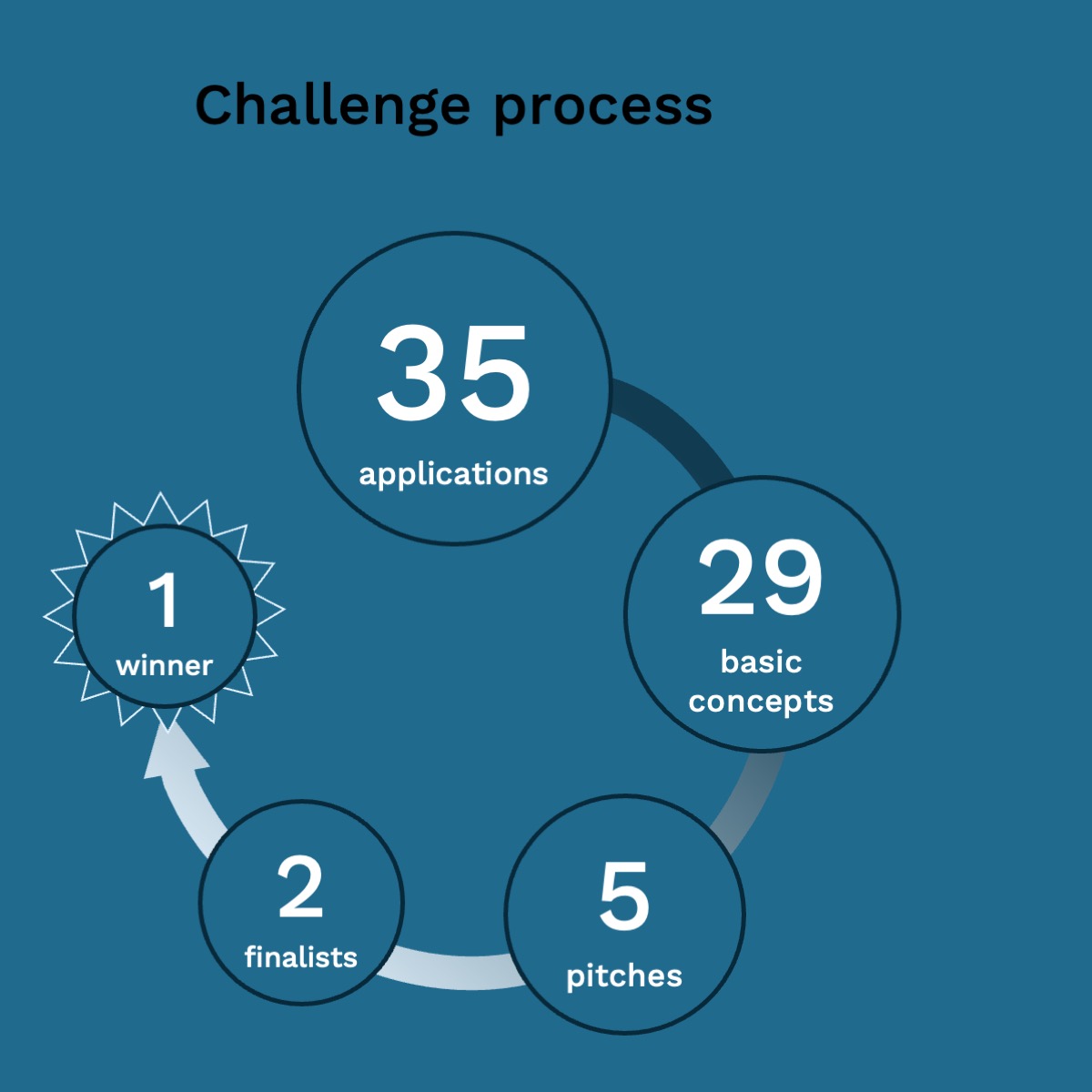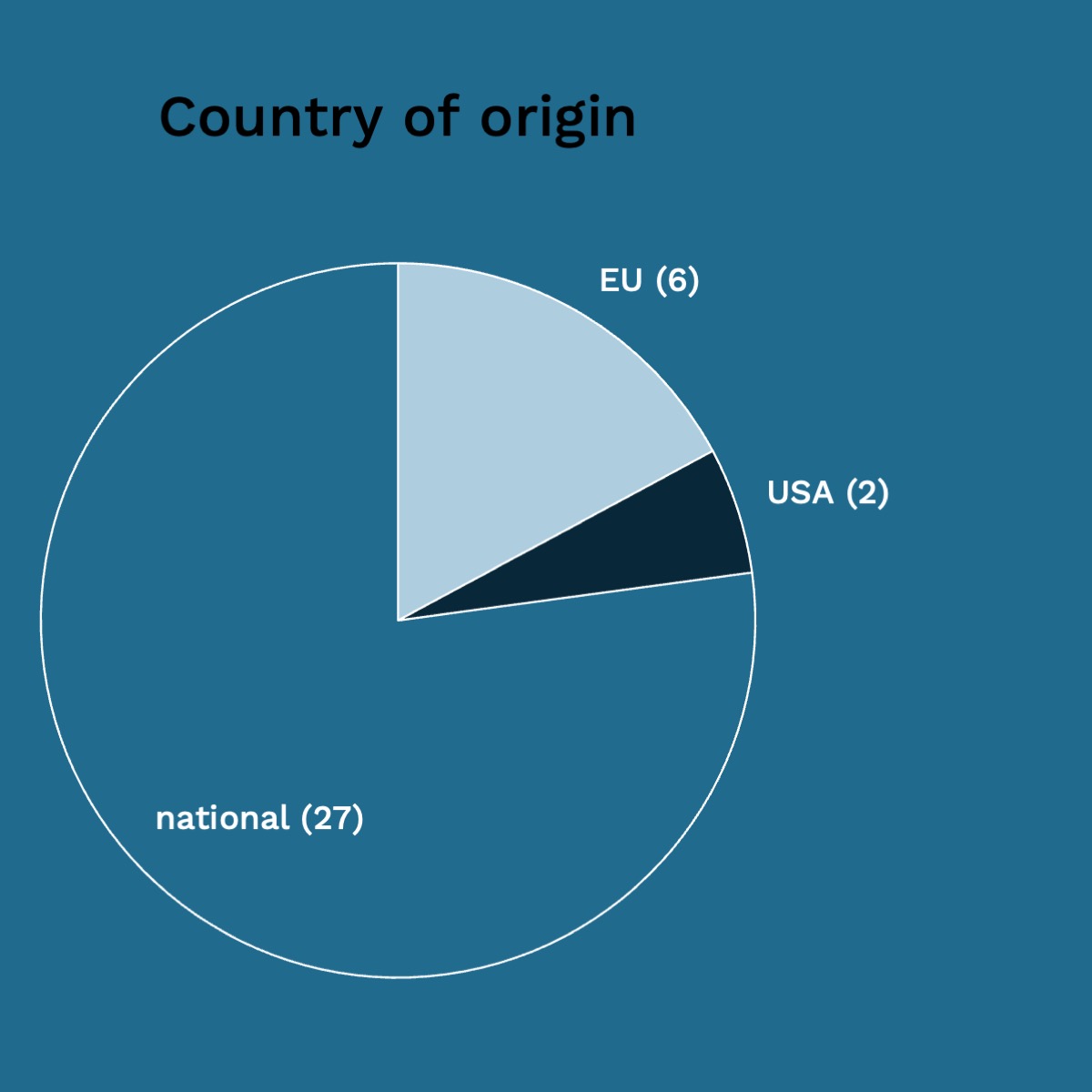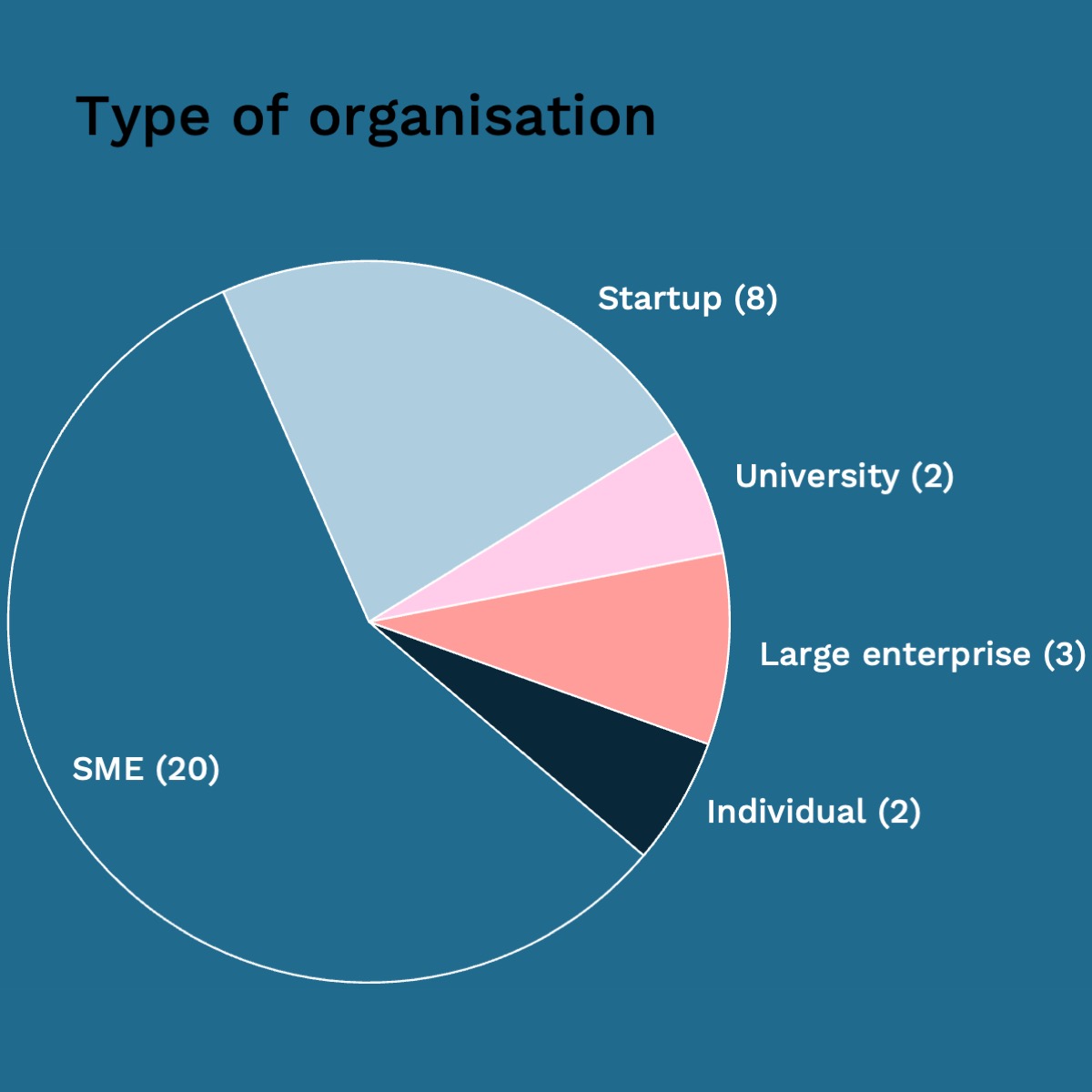What we learned about using the challenge format for experimentation
Local experiments such as the Urban Data Challenge serve as a basis for gaining practical insights on B2G2S data sharing in city contexts. As often in complex and innovation projects, gaining insights is a key aspect of the undertaking. Although ideally, all initial hypotheses and plans are proven to be valid and correct, that is not how it usually works. However, also the aspects that did not work out as planned are very valuable for the innovation and learning process. Experiments, carried out with meaningful use cases and with the ownership of city officials and high-level policy commitment, are essential when looking to change policies or to regulate in the field of digital and technology.
The urban challenge as a format can successfully solve real challenges of city administrations: Although the collaboration of the University of Bremen, the winner of our competition of ideas, and the Authority for Transport and Mobility Transition (BVM) is ongoing and final results are outstanding, an initial evaluation shows, that the winning team adds new capacities and competencies to the process of analysing the effect of a pop-up bike lane specifically and micromobility flows in Hamburg in general. A key factor for the project has always been to ensure an actual use case for the experimentation to learn in a real environment and demonstrate the potential of using data for the public interest.
The urban challenge format very successfully stimulated and involved the innovation ecosystem. We received 35 applications from diverse backgrounds (see below) - academia, start-ups, large companies, consultancies – and from Germany, Europe, and the USA. Subsequently, 29 of them successfully submitted a fully eligible set of documents including their basic concepts. These numbers are, also compared with similar initiatives from for example Barcelona, very high.
The urban challenge format was fruitful in the case of the Urban Data Challenge, but carries high bureaucratic burdens and therefore is only partially practical for experimenting. We chose the format of an urban challenge with the ambition of organising a lean and appealing competition of ideas with low barriers to participate. However, the initial expectation and understanding that a complex procurement process could be bypassed, as our challenge prize money (40,000 EUR) was below the threshold (“Unterschwellenbereich”), proved to be wrong. Instead, we learned that an official procurement process was still required, as the fact that the prize money is below the threshold does not mean that procurement processes can be neglected, but mainly changes the options of legal procedures for the participants in the process. To structure and guide us through the procurement process, we thus decided to collaborate closely with Dataport, an IT service provider for the public administration in Hamburg. Nevertheless, the process turned out to be very time-consuming for all stakeholders involved (e.g. the different departments from the City of Hamburg, The New Institute team, lawyers). Most importantly, the process for the challenge participants was not as straightforward and easily accessible as anticipated in the beginning. Our recommendation for the administration would therefore be to make greater use of the leeway that procurement law provides to overcome the somewhat conflicting goals of procurement processes and the promotion of innovation.
The Urban Data Challenge – Reflecting on the journey
In August 2023, we announced the University of Bremen as the winner of our Urban Data Challenge Hamburg. Their innovative and scientific concept, entitled “MoveAI”, convinced our jury and will now be implemented as a prototype in close collaboration with the City of Hamburg. Congratulations again!
But how did we get there? What exactly was the Urban Data Challenge? And what kind of organisations participated? In this article, we want to briefly revisit key milestones of the challenge and share some of the learnings we gained from it.
It all started in February 2023, when we launched our Call for Participation, challenging the innovation ecosystem to join our competition and develop solutions that help analyse micromobility flows on the Reeperbahn and in surrounding neighbourhoods on the basis of shared private and public data. Our objectives were twofold: to improve micromobility infrastructure and traffic planning for citizens, while also exploring new methods of data sharing for the public interest.
Over the following weeks, we received 35 applications from diverse backgrounds - academia, startups, large companies, consultancies – and from Germany, Europe, and the USA. Subsequently, 29 of them successfully submitted their basic concepts, which were reviewed and evaluated according to criteria such as creativity and innovation, technological and economic feasibility and data protection.
The top five contenders were then invited for Pitch Day in May 2023 at the Authority for Transport and Mobility Transition. The event gave them the opportunity to present their concept to a distinguished interdisciplinary jury, which selected the two most promising finalists based on i.e. the experience of the team, the scalability of their proposal, and the degree of innovation. The members of the jury were Christian Pfromm (CDO of the Free and Hanseatic City of Hamburg, ITD), Prof. Dr. Jana Kühl (HAW Ostfalia), Thomas Fuchs (Commissioner for Data Protection and Freedom of Information Hamburg), Edda Becker (Innovation Expert and Mentor for Startup Teens), Diether Schönfelder (CDO of the Authority of Transport and Mobility Transition, BVM), Aline Blankertz (Wikimedia), Mario Schmitz (IOT Venture), and Natascha Spörle (Bolt).
Following the jury's decision, in-depth negotitations between the two finalists and the city took place, culminating in the announcement of the University of Bremen as the winner of the Urban Data Challenge Hamburg, with €40,000 to implement their proposal. We are very excited to follow the development of their prototype over the coming months and to see its potential for planning and enhancing micromobility infrastructure in Hamburg and beyond.
View page of the winner: University of Bremen
For now, however, we would like to leave you with a short list of key takeaways from the Urban Data Challenge Hamburg that may help inform similar initiatives in the future:
Building bridges takes time: The Urban Data Challenge Hamburg is a multi-stakeholder project involving different departments of the City of Hamburg as well as external stakeholders. It was challenging at times to manage the bureaucratic differences and varying working cultures and yet worthwile to build bridges and to learn jointly how to foster public data-based innovation.
Innovation wins: Most of the proposed solutions were dashboard systems focusing on analysis only, so the few more specific solutions that involved exploring new technologies stood out. Examples include the use of artificial intelligence to define spatio-temporal communities for more in-depth analysis, or the development of a fairness indicator for micromobility traffic planning.
Micromobility data is out there: For a long time a key problem in city planning was that there is little reliable data on micromobility, which is partly because of a lack of economic interest, compared to car data. Through this challenge we learned, however, that this is now changing and also, that several companies holding micromobility data are open to explore options to share and use the data for public purposes, although some were hesitant due to challenging bureaucratic experiences in the past.
If you are interested in further lessons from the Urban Data Challenge Hamburg, particularly concerning methodas of data sharing and governance, please bear with us! Our forthcoming blueprints for data sharing for the public interest will be published this fall and will draw connections between the work of our Data Commons Working Group and the insights from this challenge.
So stay tuned and follow the process of The New Hanse via our website or write us an email to info@thenewhanse.eu.
Why data and why the Urban Data Challenge Hamburg?
Data is a critical urban infrastructure – it leads to better public decision-making for example in infrastructure planning and service delivery, which serve the interests of the citizens. Specifically cycling and micromobility is a rich data ecosystem. In times of the mobility transition, the ambition and interest of making cycling and micromobility more attractive, integrated, safe, sustainable and convenient for citizens exists. The Urban Data Challenge is a competition of ideas that starts right there, promoting the collaborative use of data from public and private sources and showing how this can help make a city like Hamburg greener and more sustainable.
Why cities and why Hamburg?
Cities are laboratories for democratic and sustainable innovation
They enable experimenting at scale for new collaborative practices and democratic standards for data sharing and furthermore provide normative and regulatory power coupled with infrastructural capacity and proximity to citizens.
This is especially true for the City of Hamburg, with its very ambitious digital policy goals, its net zero agenda and unique transparency laws that gives the citizens comprehensive rights to information as well as its advanced technical infrastructure and capabilities with the Urban Data Platform.
The City of Hamburg’s goal is to increase the share of all journeys made by public transport (including car sharing), cycling trips and foot traffic to 80% of the modal split by the end of the decade. The share of bicycle traffic shall be increased to 25 to 30%. For a more holistic and future-oriented view, the term micromobility includes all vehicle types next to bicycles, such as (electric) cargo bikes and electric scooters), which are allowed to go on bike lanes.
To achieve this goal, it is required to gain deeper insights into the new flows of micromobility on Hamburg’s streets. With optimal use of resources, this helps to improve infrastructure and have a user-focused way of mobility planning, which should prioritise vulnerable road users like users of micromobility and of course pedestrians. At the same time, users of such means of transport should respect the physical space where they are allowed to circulate and park, ensuring safety and convenience for other users.
What & How
Content and objectives of the Urban Data Challenge Hamburg
As part of the Urban Data Challenge, in addition to public data, a comprehensive set of exclusive private micromobility data will be made available, which will include various movement and vehicle data for a given time period. As part of this competition of ideas, these are to be analysed, combined and put into relation (optionally with other data sets proposed by the participants).
The goal is to use this to develop a holistic view of micromobility behaviour and, if possible, to enable a variety of the following analyses:
1. The most important use case to be considered is the change in mobility behaviour on the Reeperbahn due to the new eastbound pop-up bikelane from November 2022. By means of a before-and-after analysis, the city will investigate the resulting effects in the neighbouring districts of St. Pauli, Altona-Nord, Altona-Altstadt, Neustadt and Sternschanze and thereby derive results for further projects.
Beyond the "Reeperbahn" use case, the expected analysis results are to be used to implement infrastructural and traffic improvements. These findings can contribute to the following focal points and measures:
2. Analysis of the modal shift effects of the introduction of the pop-up bikelane and analysis of effects on transport mode choice
3. Identify areas and specific roads for further pop-up routes
4. Adjustment of the light signal programs on the basis of the measured average speeds and minimization of the average waiting times
5. Identify areas where maintenance and/or design improvements are required to increase the safety of users e.g., uneven roads and abruptly ending lanes
6. Assessment of areas and specifications for parking facilities for micromobility vehicles
7. Support the development and expansion of the various cycling networks in the city
8. Alternate routes (where micromobility users and cyclists deliberately accept detours instead of direct connections as foreseen by e.g. cycling networks)
What’s next?
The working group from the University of Bremen will now receive an implementation budget of 40,000 euros to develop a software prototype for analysing cycling and micromobility flows on Hamburg's cycle paths in close cooperation with the Ministry for Transport and Mobility Change within the next three months.
After completion of this implementation phase, the results will be presented in November.
FAQS
What are the objectives of the Challenge?
The Challenge is a competition for ideas seeking innovative solutions that put the collaborative use of mobility data from public and private sources to the test. We are collaborating with renowned industry partners in the field of cycling and micromobility. By providing data for the best concept idea, our partners help drive innovation and explore new models of data sharing between business, government, and society (B2G2S) to support transportation planning in cities.
Who is behind the Challenge?
The City of Hamburg and THE NEW INSTITUTE have partnered to work on the joint innovation project The New Hanse. The aim of the project is to test and implement new models for digital democracy and the use of data for the common good, with a particular focus on the topic of sustainability within cities.
Who can I contact if I have any further questions?
Questions about the Challenge may only be submitted via Dataport’s eProcurement platform. All questions will be collected and the answers will be published on the same platform. Please refer to the table above for the exact dats. For all other questions, please contact info@thenewhanse.eu.







